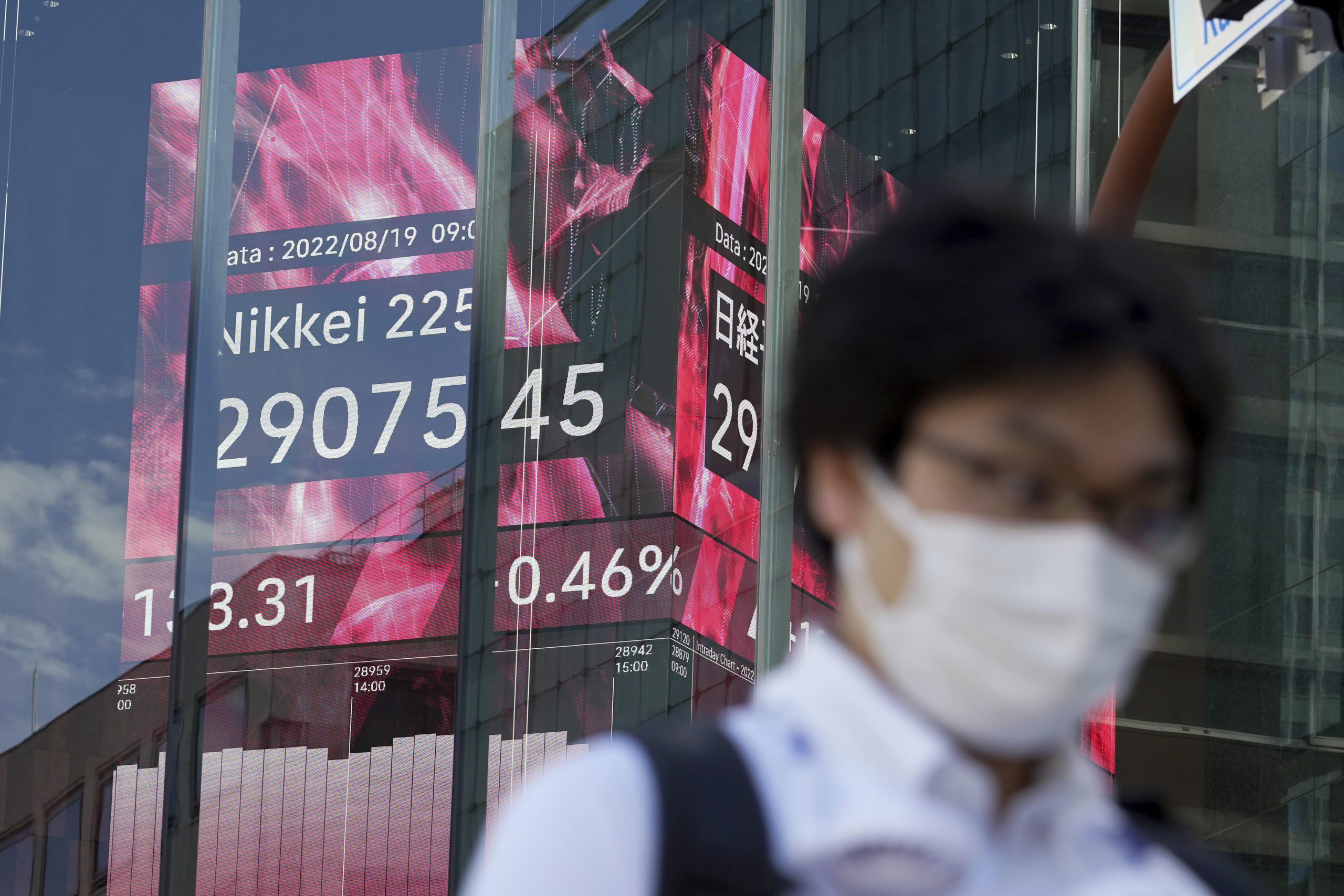 1
1 1
1
Stocks are broadly lower on Wall Street in afternoon trading Friday, putting major indexes on track for losses that will end a solid run of weekly gains.
The S&P 500 fell 1.3% as of 3:29 p.m. Eastern. The benchmark index is now on pace to break a four-week winning streak. The Nasdaq fell 2% and is also set to end four weeks of gains.
The Dow Jones Industrial Average fell 293 points, or 0.9%, to 33,706 and is slightly in the red for the week.
Technology stocks had some of the biggest losses and the sector’s dip weighed heavily on the broader market. Microsoft fell 1.3%.
Retailers, banks and communications companies also fell sharply amid the broad slide.
Meme stock Bed Bath & Beyond sank 43.8% after the high-profile activist investor Ryan Cohen confirmed that he’s sold his stake in the company.
Small company stocks also lost ground, pulling the Russell 2000 index 2.3% lower.
Cryptocurrencies fell broadly as Bitcoin slumped 8.5% to $21,434, according to CoinDesk.
Bright spots included General Motors, which rose 2.9% after reinstating its dividend. Foot Locker soared 21.1% after replacing its CEO and reporting earnings that beat Wall Street’s estimates.
Bond yields gained ground. The yield on the 10-year Treasury rose to 2.98% from 2.89% late Thursday.
Trading has been choppy throughout the week as investors reviewed the latest batch of earnings from retailers and updates on spending, home sales and the employment market.
Big retailers including Walmart and Target have warned investors that inflation is crimping consumer spending. Department store owner Macy’s will report its results next week.
A report on retail sales this week showed that spending remains resilient as gasoline prices fall and help ease some pressure from inflation.
Wall Street is trying to determine how stubbornly hot inflation is affecting businesses and consumers and whether the economy can remain resilient and avoid a recession.
The data from government and corporate reports is also being closely watched as investors try to determine how the Federal Reserve will continue with its plan to fight inflation by raising interest rates. The goal is to raise rates and slow down economic growth to cool inflation. But, the central bank is threading a fine line between taming inflation in an already slowing economy and hitting the brakes too hard and veering the economy into a recession.
Minutes of the Fed’s July meeting released this week said inflation is still is too high and made clear the central bank will keep raising interest rates. The central bank has raised interest rates twice this year by 0.75 percentage points, triple its usual margin. Forecasters currently expect a hike of a half-percentage point at the board’s next meeting.